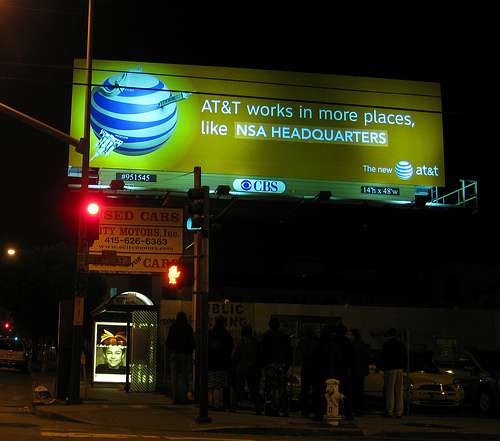Surveillance Program Backers Resisted Basic Oversight

Here's something important to remember about yesterday's revelation that the National Security Agency has been hovering up data on every call made by every Verizon customer in the country: It's not just that there isn't enough oversight of federal surveillance operations. It's that the congressional legislators behind the program haven actively resisted even modest attempts at oversight. And they've done so under the pretense that those modest efforts would undermine national security.
Whenthe FISA Amendments Act Reauthorization Act of 2012, which broadly governs federal electronic surveillance activities, was up for a vote in the Senate at the tail end of last year, Sen. Ron Wyden (D-Oregon) introduced two amendments that would have added a layer of oversight to certain federal surveillance activities. Cato security policy analyst (and Reason contributing editor) Julian Sanchez explained those two amendments back in December:
One would require the NSA to produce a rough estimate of how many Americans' communications are intercepted under the sweeping "vacuum cleaner" style programs authorized by FAA, which they have thus far refused to do, probably in part because the number would be distressingly high. A second would prohibit "backdoor searches" targeting Americans. The idea here is that precisely because warrantless FISA surveillance is so sweeping, and large numbers of Americans' communications are likely to end up in the NSA database even if foreign groups are in theory the "target" of surveillance—as we know has already happened on a large scale—it becomes possible to effectively "target" Americans simply by entering their names or other identifying information in searches of the database. That's obviously a way of circumventing the law's ban on "reverse targeting" that is really meant to spy on Americans under authority nominally aimed at foreigners. Wyden's amendment would simply require an individualized FISA warrant when agents want to search their vast communications database for a particular American's information. The NSA has objected to the term "backdoor searches" and the characterization of this process as a "loophole" in the law—but they certainly haven't denied that the law as written allows them to do this, and have resisted this effort to prohibit it.
This is basic stuff: How many people are being affected? Are security agencies actually targeting individuals, rather than performing broad sweeps of innocent citizens? (As Sanchez noted elsewhere, the NSA has argued that it cannot reveal how many Americans are swept up in its surveillance efforts, because doing so would violate your privacy. As Dave Barry says, I am not making this up.)
Many of the law's backers seem to think that even the basic oversight questions Wyden's amendments pose go too far. And besides, they say, there's plenty of oversight already. "I don't think there's any program that has more vigorous oversight," said Sen. Dianne Feinstein (D-Calif.) during debate over the law in December of last year.
In the end, the Act passed a five-year reauthorization without Wyden's amendments. But now, with the latest news, we can start to answer those questions: Information about calls made by millions of Americans is being collected and stored, and the surveillance program is targeting, at minimum, everyone and every call on one of the nation's two largest wireless carriers.
For a long time, Sen. Wyden, along with folks like Sen. Rand Paul (R-KY), has been warning that Americans would be "shocked" if they actually knew the extent of the domestic surveillance activities that the administration believes are within its legal right. We still don't have a complete picture—but we've got a glimpse, and Wyden, it seems, was right.
Show Comments (88)